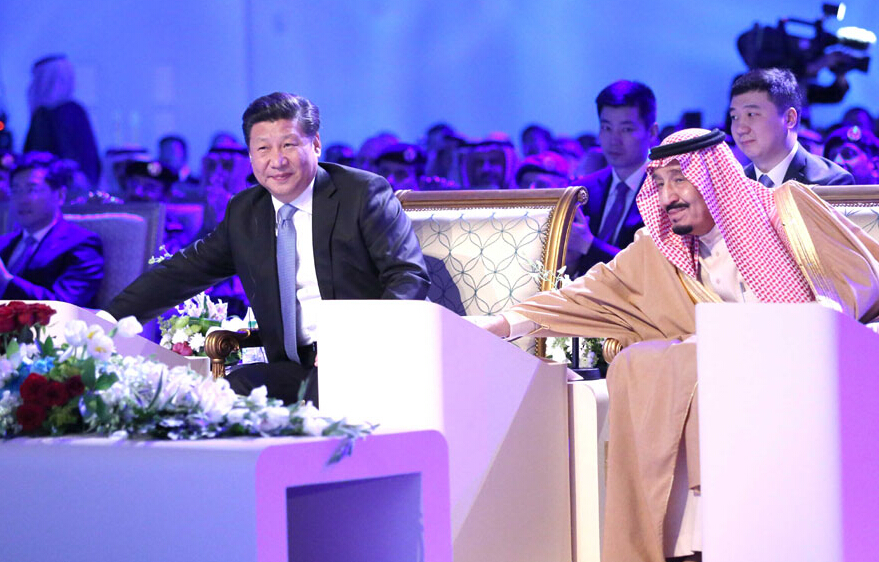A more active diplomacy for China in the Middle East?
- By Tim Collard
 0 Comment(s)
0 Comment(s) Print
Print E-mail China.org.cn, January 21, 2016
E-mail China.org.cn, January 21, 2016
President Xi Jinping this week is visiting three major countries in the Middle East/North Africa region – Saudi Arabia, Egypt and Iran. It is of course nothing new for China to wish to maintain good relations across a region that is an important oil supplier, but this time there is much more involved.
|
|
|
Chinese President Xi Jinping (L) and Saudi King Salman bin Abdulaziz Al Saud inaugurate the operation of the Yasref oil refinery, a joint venture between Saudi Aramco and China's Sinopec in Riyadh, Saudi Arabia, Jan. 20, 2016. [Photo/Xinhua] |
Until now, China has taken good care not to become embroiled in the volatile politics of this troubled region, maintaining good relations with both Israel and the Arab states, and restricting comments to expressing wishes for a peaceful solution to conflicts, with mutual respect for the sovereignty and core interests of all sides.
In view of the Jam the West has got itself into through a more interventionist role, it is quite understandable that China should prefer to maintain a certain distance.
But this approach is no longer compatible with China's new status in the world. So tightly are the different continents now bound together, economically and strategically, that nothing can now be regarded as "out of area." China's major international initiative, the Silk Road Economic Belt and the 21st Century Maritime Silk Road, demonstrates the desire for stability through economic links rather than projecting power.
However, there are some perennially destructive security problems that have to be addressed; China's special concern is infrastructure, and turmoil and war are incompatible with this. For the necessary sustainable commercial links to be established, lasting peace is a prerequisite.
Fortunately, the restraint China has hitherto exercised gives her a unique position to play a positive role; there is no history of imperial or Cold War-based interference, and China has established a respected neutrality on the Arab-Israel issue. All this means it is excellently placed to make an effective soft-power based contribution, and to be listened to by all parties.
Though it is only 25 years since China and Saudi Arabia established diplomatic relations, trade has boomed, with China now sourcing 16 percent of her oil from Saudi Arabia and the latter providing a most attractive market for Chinese engineering and construction companies. Saudi Arabia is also a founder member of the newly opened Asia Infrastructure Investment Bank (AIIB).







Go to Forum >>0 Comment(s)